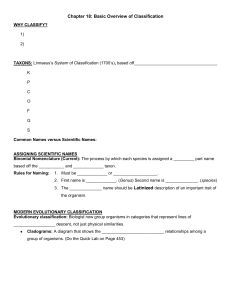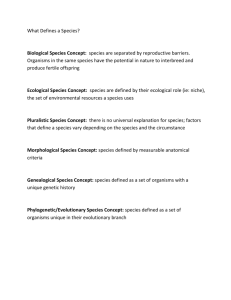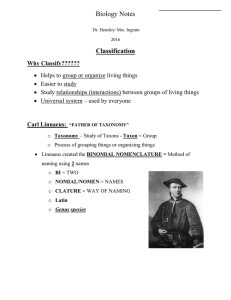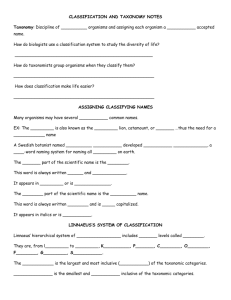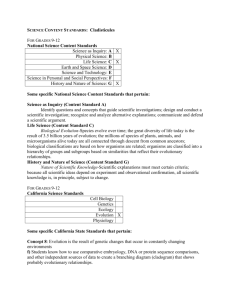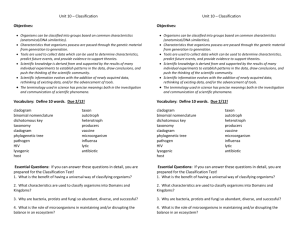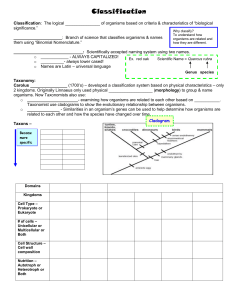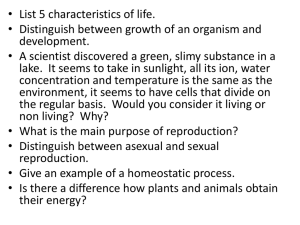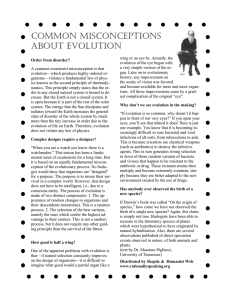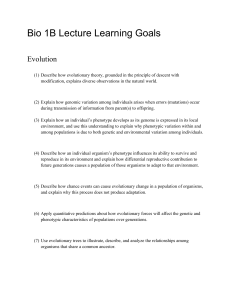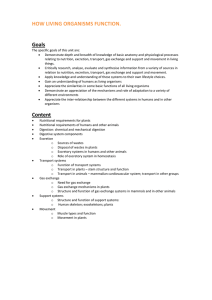Classification Basics: Taxonomy Worksheet
advertisement
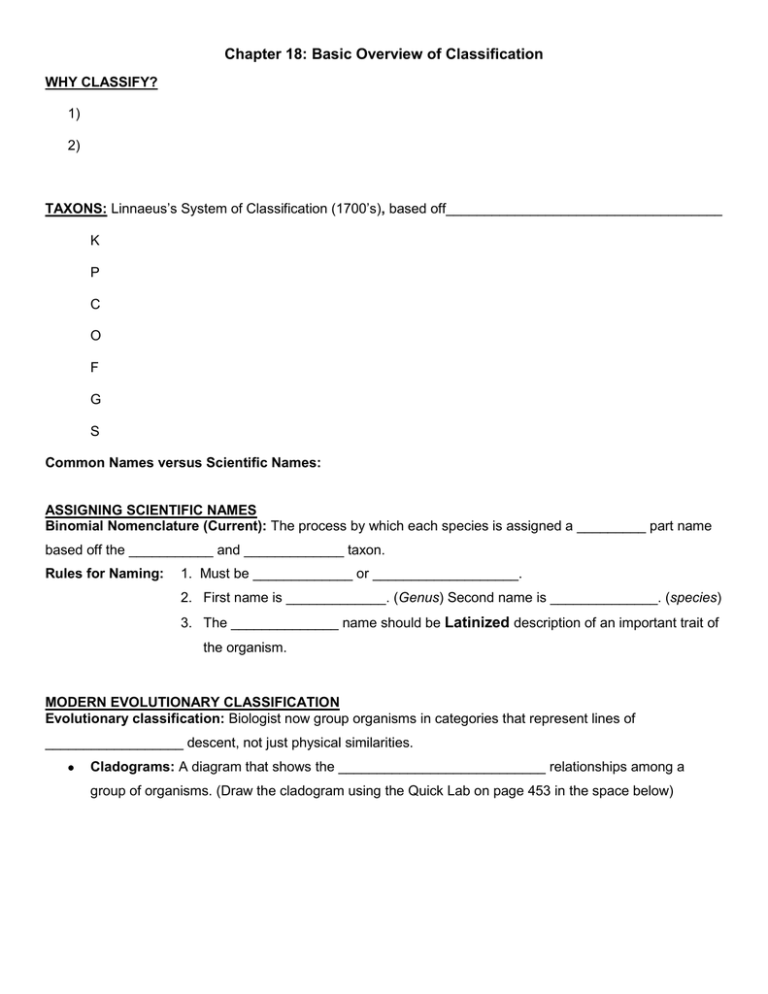
Chapter 18: Basic Overview of Classification WHY CLASSIFY? 1) 2) TAXONS: Linnaeus’s System of Classification (1700’s), based off____________________________________ K P C O F G S Common Names versus Scientific Names: ASSIGNING SCIENTIFIC NAMES Binomial Nomenclature (Current): The process by which each species is assigned a _________ part name based off the ___________ and _____________ taxon. Rules for Naming: 1. Must be _____________ or ___________________. 2. First name is _____________. (Genus) Second name is ______________. (species) 3. The ______________ name should be Latinized description of an important trait of the organism. MODERN EVOLUTIONARY CLASSIFICATION Evolutionary classification: Biologist now group organisms in categories that represent lines of __________________ descent, not just physical similarities. Cladograms: A diagram that shows the ___________________________ relationships among a group of organisms. (Draw the cladogram using the Quick Lab on page 453 in the space below) Kingdoms and Domains How organisms have been classified over the years 1700’s Late 1800’s 1950’s 1990’s Molecular analyses have given rise to a new taxonomic category that is now recognized by many scientists. The _____________________ is a more inclusive category than any other – larger than a kingdom. Classification of Living Things Domain Kingdom Archaea Archaebacteria Bacteria Eubacteria Eukarya Protist Fungi Plant Animal Cell Type Number of Cells Mode of Nutrition Examples Important Vocabulary for Classification Cell Type Number of Cells Mode of Nutrition Prokaryotic Cell Unicellular Autotroph Eukaryotic Cell Multicellular Heterotroph
